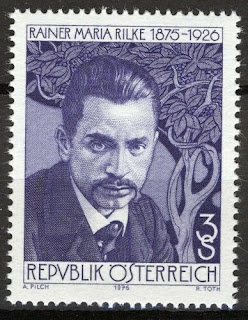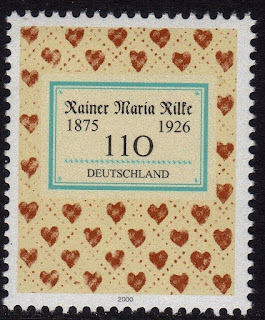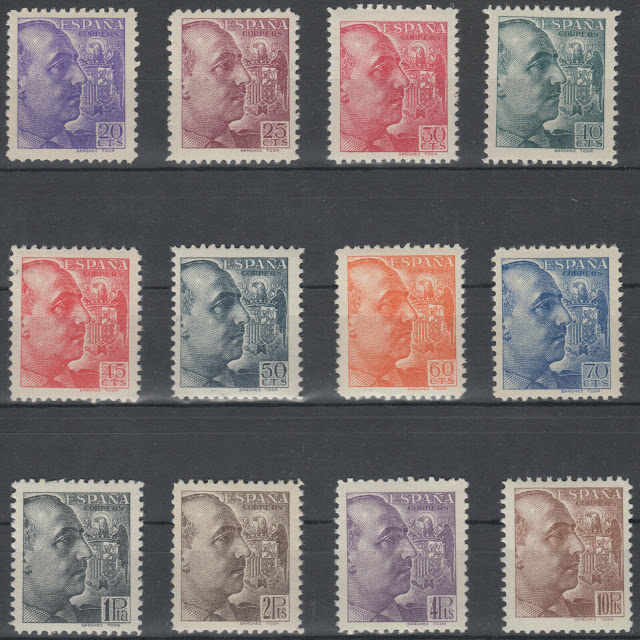1875 Born: Rainer Maria Rilke, Austrian poet and author (d. 1926)
René Karl Wilhelm Johann Josef Maria Rilke (4 December 1875 – 29 December 1926), better known as Rainer Maria Rilke, was a Bohemian-Austrian poet and novelist. He is "widely recognized as one of the most lyrically intense German-language poets". He wrote both verse and highly lyrical prose. Several critics have described Rilke's work as "mystical". His writings include one novel, several collections of poetry and several volumes of correspondence in which he invokes images that focus on the difficulty of communion with the ineffable in an age of disbelief, solitude and anxiety. These themes position him as a transitional figure between traditional and modernist writers.
Rilke travelled extensively throughout Europe (including Russia, Spain, Germany, France and Italy) and, in his later years, settled in Switzerland – settings that were key to the genesis and inspiration for many of his poems. While Rilke is most known for his contributions to German literature, over 400 poems were originally written in French and dedicated to the canton of Valais in Switzerland. Among English-language readers, his best-known works include the poetry collections Duino Elegies (Duineser Elegien) and Sonnets to Orpheus (Die Sonette an Orpheus), the semi-autobiographical novel The Notebooks of Malte Laurids Brigge (Die Aufzeichnungen des Malte Laurids Brigge), and a collection of ten letters that was published after his death under the title Letters to a Young Poet (Briefe an einen jungen Dichter). In the later 20th century, his work found new audiences through use by New Age theologians and self-help authors and frequent quotations by television programs, books and motion pictures. In the United States, Rilke remains among the more popular, best-selling poets.
Austrian and German stamps depicting Rainer Maria Rilke
Francisco Franco Bahamonde(4 December 1892 – 20 November 1975) was a Spanish general and politician who ruled over Spain as Head of State and dictator under the title Caudillo from 1939, after the Nationalist victory in the Spanish Civil War, until his death in 1975. This period in Spanish history is commonly known as Francoist Spain or the Francoist dictatorship.
On 1 October 1936, in Burgos, Franco was publicly proclaimed as Generalísimo of the National army and Jefe del Estado (Head of State). When Mola was killed in another air accident a year later (which some believe was an assassination) (2 June 1937), no military leader was left from those who organized the conspiracy against the Republic between 1933 and 1935
Franco remains a controversial figure in Spanish history, but it is worth noting that the nature of his dictatorship changed over time. His reign was marked by both brutal repression, with thousands killed, and economic prosperity, which greatly improved the quality of life in Spain. Franco's dictatorial style proved very adaptable, which could introduce social and economic reform, and the only consistent points in Franco's long rule were above all authoritarianism, Spanish nationalism, national Catholicism, anti-Freemasonry, and anti-communism.










No comments:
Post a Comment